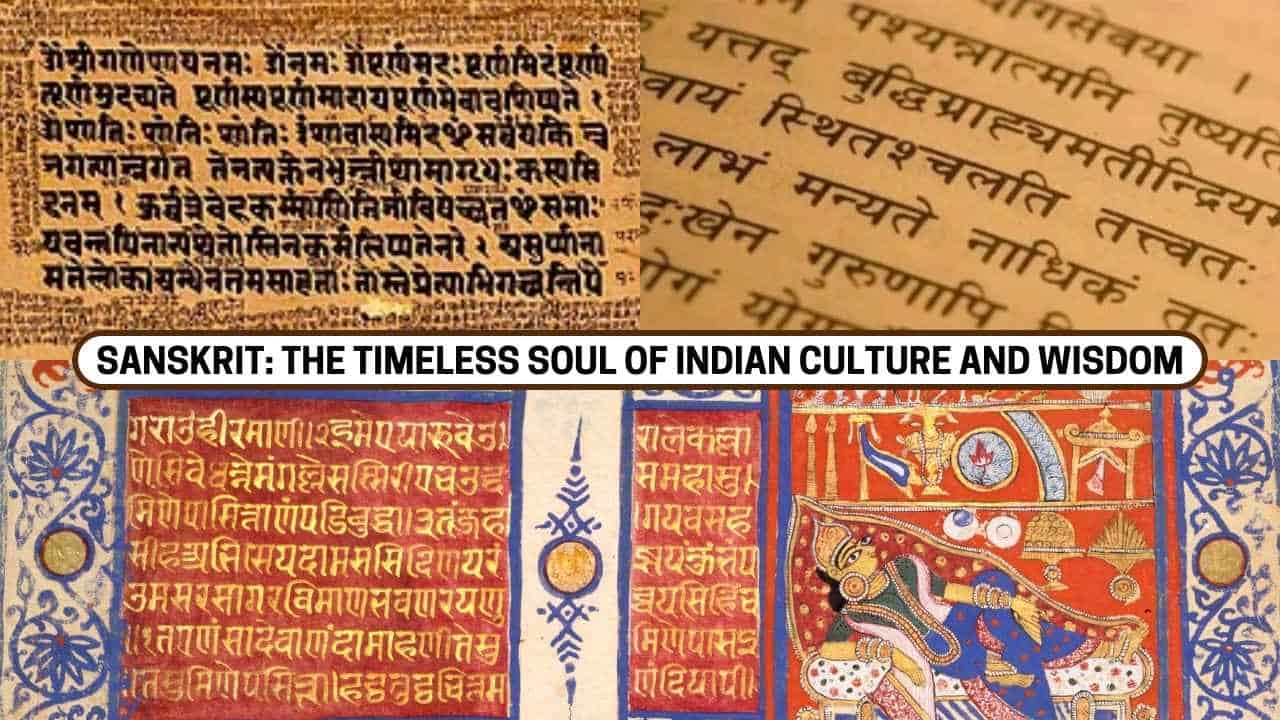Sanskrit: The Timeless Soul of Indian Culture and Wisdom
Sanskrit, revered as the language of the gods, forms the foundation of India"s cultural, spiritual, and intellectual heritage, making it essential in today’s society.
Total Views |

The Sanskrit language, often referred to as the "mother of all languages," holds a deep significance in Indian society.
Despite its ancient origins, it continues to be relevant, playing a crucial role in shaping India's cultural identity, intellectual achievements, and spiritual values.
Today, with a renewed focus on traditional values and knowledge systems, the importance of Sanskrit is being rediscovered.
One of the most profound reasons Sanskrit is crucial to Indian society is its role in preserving the cultural heritage.
Many of India's sacred texts, philosophical treatises, epics, and classical literature were composed in Sanskrit. The Vedas, Upanishads, Bhagavad Gita, Ramayana, and Mahabharata—texts that have shaped Indian thought for millennia—are all in Sanskrit.
Understanding Sanskrit unlocks access to this vast reservoir of knowledge, ensuring that these ancient teachings are not just preserved but also understood in their truest form.
In an age where cultural identities are constantly evolving, Sanskrit serves as a bridge to the past, connecting modern generations with the traditions and wisdom of their ancestors. Its survival is synonymous with the survival of Indian civilization's essence.
Sanskrit is often lauded for its precision and complexity. The structure of the language is known for its logical consistency, making it ideal for philosophical discourse.
India's ancient philosophers, such as Patanjali, Panini, and Shankaracharya, used Sanskrit to discuss intricate concepts related to metaphysics, ethics, and logic.
Moreover, Sanskrit's grammatical structure influenced the development of modern linguistics. Panini's work on Sanskrit grammar laid the foundation for the study of language and grammar worldwide.
This intellectual tradition, rooted in Sanskrit, continues to inspire scholars and academics today, especially those in the fields of linguistics, philosophy, and religious studies.
Sanskrit is considered the sacred language of Hinduism, Buddhism, and Jainism. The mantras, hymns, and rituals central to these religions are predominantly in Sanskrit.
Chanting or listening to Sanskrit verses, such as those in the Gayatri Mantra or the Shlokas from the Bhagavad Gita, is believed to bring spiritual benefits, invoking peace and enlightenment.
In Hindu religious practices, Sanskrit is not just a tool for communication but is revered as a divine sound. Many believe that the pronunciation of Sanskrit words has an inherent vibrational quality that connects individuals with the universe's spiritual energy.
Despite being an ancient language, Sanskrit is making a modern-day comeback. Several educational institutions in India and abroad have introduced Sanskrit as part of their curriculum, recognizing its value in both traditional and contemporary contexts.
Organisations and government initiatives are working tirelessly to revive the language, and there is an increasing interest among young Indians to learn Sanskrit.
In the digital age, technology has made Sanskrit more accessible, with numerous apps, online courses, and digital libraries dedicated to its study. This modern revival underscores the language’s adaptability and its ability to remain relevant in today's fast-paced, technologically driven world.
With the global rise of yoga and meditation, Sanskrit's relevance has crossed Indian borders. The asanas (yoga postures) and many terms associated with yoga and mindfulness practices are rooted in Sanskrit.
As yoga enthusiasts worldwide seek a deeper understanding of the practice, learning Sanskrit helps them connect more authentically with its spiritual and philosophical underpinnings.
Sanskrit's precision has also attracted attention from the fields of computer science and artificial intelligence. Scholars have suggested that the language's grammar and syntax are well-suited for programming and developing algorithms, potentially making Sanskrit useful in technology. This has sparked curiosity about how the ancient language could contribute to the future of technological advancements.
In a diverse country like India, where linguistic variety can sometimes lead to fragmentation, Sanskrit has the potential to act as a unifying force.
As a language that belongs to no particular region but is revered across India, Sanskrit symbolises national integration.
Promoting Sanskrit can encourage a sense of unity and shared heritage among Indians, irrespective of regional linguistic differences.
Sanskrit is not just a relic of the past; it is a living testament to the intellectual and spiritual depth of Indian society.
From preserving ancient wisdom to influencing modern science, Sanskrit’s importance transcends its historical roots.
As efforts to revive and promote the language gain momentum, its continued relevance in shaping India's cultural and intellectual future becomes ever more apparent.
Article by
Shomen Chandra
Sub Editor, The Narrative


